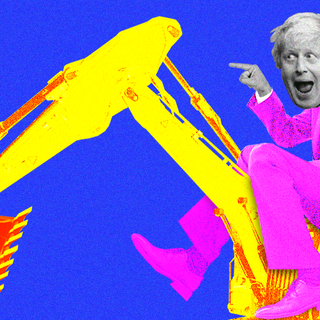
It’s Okay: To Be Irrational
The world is chaotic and incalculable. Then why should reason be expected of us always?

In It’s Okay, we defend our most embarrassing, unpopular opinions.
There’s something cathartic about watching a wispy Hritik Roshan dance to “Main aisa kyun hoon” in the movie Lakshya (2004). It’s neitherthe moves, nor the plot, but the flippant refrain of the song. “Why am I like this,” as the song roughly translates to, is a phrase I hold near and dear. “Like this” exists as a nifty shorthand for not thinking clearly or having pitch-perfect logic to justify all incoherent thoughts, unwise decisions, and opinions that flexibly take ideological leaps.
We live ina world where not exercising good-old reason, which humans desire to be the default setting for functioning, is a cultural and intellectual faux pas. The luster lies in the virtuous ideas of reason, rationality, and critical thinking. Having a good answer to make sense of all actions and thoughts is the ultimate triumph of the human form, we’re told.
But this sheen of rational thinking hides a misplaced assumption: that humans are uniquely rational creatures, and the world calmly exists in a state of order. Untruths, both. Irrationality has been the defining arc of human life and history.
In his book, Irrationality: A History of the Dark Side of Reason, philosopher E.H. Smith shows how the narrative of reason we have grown up with is misrepresented. The idea iswe progressed from believing in myth and superstition to an age where rationality as “the highest value in human life.”
But that’s not quite true.
It helps to first debunk this padded myth of rational thinking. One answer hints at Charles Darwin’s theory of natural selection. Since the holy powers of nature only favor a select few, the expectation is that natural selection should result in behavioral rules that traditionally perform well. The optimal standards of functioning should be actions that are bound by reason. But we know that’s not the case; the theory ignores room for emotions or context. In the 1970s, two psychologists even proved that people are not rational; cognitive biases, the blind spots in our thinking processes, make room for decisions that defy logic.
Related on The Swaddle:
Only Calm, Happy Women Are Thought to Be Better Leaders Than Men, Research Shows
This saga conceals an inconvenient truth: being irrational is a good thing. For one, it subverts the cultural expectation of not showing emotions in public — or just the hush-hush attitude around emotions, in general. Emotions, self-proclaimed arbiters of reason would tell you, arethe enemy of reason; rationality demands a logical line of inquiry. It can’t be a game your gut and brain both play; that’s not traditional “thinking.”
This is also a logic people use to dismiss the capability of any gender other than the traditional male. Women, for instance, are hysterical and emotional, and thus incapable of making rational decisions; such has been the age-old wisdom that has cemented itself as gender stereotypes. Research has shown women tend to be more effective leaders, better negotiators, and more likely to deliver on political campaign promises. The myth of women “leading with hearts” uses this parochial view of the world; in the process, emotions, whimsy, and femininity all suffer.
Subscribers of rational thinking work doubly hard to hide one truth: “Our emotions like jumping to conclusions, they often lack context, and their goals conflict with the broader ideals that our logical thoughts have laid out for us,” Zat Rana wrote in Quartz. “We are always at war with them, and it’s not a war we always win.”
A dalliance with half-formed thoughts or absurd sentiments makes room for “touchy-feely” things to exist in social space. Emotions and context become the pillars of the irrationality people so often deride. The lack of reason invites chaos, and that’s where people are allowed to shine.
Related on The Swaddle:
Then, irrationality values flaws and vulnerabilities over logic. The insistence on being reasonable all the time stems primarily from the fear of being wrong. This is an argument unto itself; people find a decision “right” or “wrong” only in hindsight, never in the moment. So embracing the decision you made on a whim is sometimes an act of liberation. No, I don’t know why I prefer the chicken over the fish. Or a walk over a workout. I just do. Irrationality, in its imperfect ways, values what is human in all of us.
It sees the world for what it is, not some impossibility.
“The idea caught on that society itself is a big machine, and that the human being is a small sub-machine within the big machine of society, and that these two kinds of machine[s] can be perfected in the same way that we have managed to perfect the steam engine, the telegraph, and so on,” Smith said in an interview, when speaking of why the pursuit of rationality exists. No one wants to be likened to an engine, a calculator, a printer, or any efficient creation. Research even argues that it is this “imperfection,” so to speak, that has allowed people to be better decision-makers.
The world is incredibly chaotic and incalculable. Then why should reason be expected of us always? Being irrational thus becomes an act of defiance; boldly rejecting the madness of imposing order on people and the world.
Rationality may be the gold standard of being. But it is in irrationality, emotions, and whimsy that we live and love. Maybe Hritik was on to something. It’s okay then; because main aisi hi hoon.
Saumya Kalia is an Associate Editor at The Swaddle. Her journalism and writing explore issues of social justice, digital sub-cultures, media ecosystem, literature, and memory as they cut across socio-cultural periods. You can reach her at @Saumya_Kalia.
Related


How Pop Culture Paints an Unhealthy, Unsustainable Picture of Friendships
